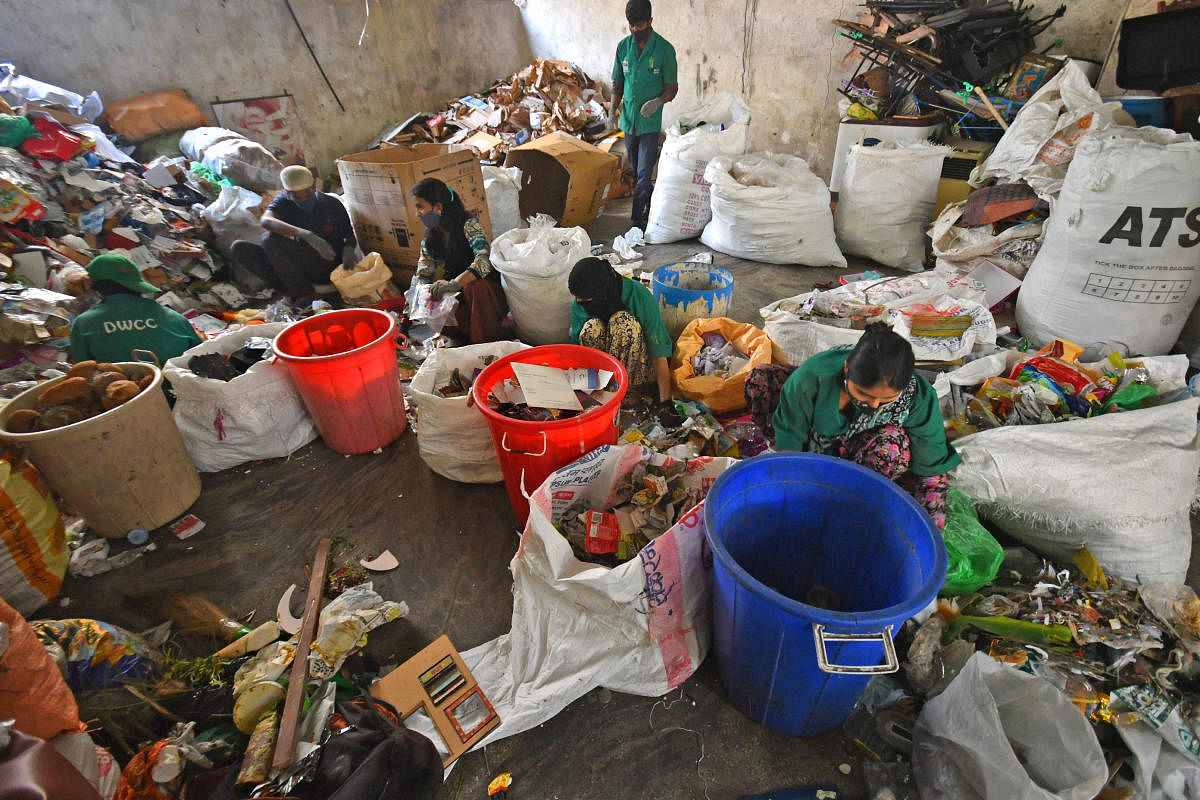
After multiple rounds of negotiations in which contractors traded barbs with NGOs, the BBMP rejigged norms for collection and transportation (C&T) of waste in all wards.
Accordingly, garbage contractors are trusted with collecting all types of waste while ragpickers will manage dry waste collection centres (DWCCs).
Under the revised plan, wet waste will be collected from households only five days a week, while the same vehicle will be used for collecting dry waste for the remaining two days. Sanitary waste, however, will be collected daily. This is done to ensure segregation of waste at the source.
NGOs or ragpickers will no longer be responsible for collecting dry waste. The BBMP has mandated contractors to send all types of dry wastes to DWCCs managed by rag pickers without financial support from the civic body.
This is likely to keep DWCCs self-sustaining. The BBMP had originally prescribed 25% of the dry waste to be sent to DWCCs, enabling contractors to divert high-value dry waste elsewhere. Officials said the changes were made after considering the feedback obtained during the pre-bid meeting held earlier this month.
Bold move
To make bids competitive, the BBMP has relaxed tender conditions letting lead bidders with experience in providing primary and secondary waste collection to partner with any firm in the bid.
The move is seen as bold since waste collection does not involve technical experience. The civic body expects more bidders in the process, including civil contractors.
The collection of waste across 243 wards has been divided into 89 packages.
The BBMP estimates the collection of waste from 42 lakh households and commercial entities to cost around Rs 590 crore a year, an increase of Rs 90 crore from the present
expenditure.
The increase is attributed to the purchase of new vehicles, including push carts and the hike in fuel prices, etc.
Upgrade dry waste centres on war footing
While NGOs have backed ragpickers to run the DWCCs, thus preventing dry waste from getting dumped in landfills, the BBMP has done precious little to improve conditions at the centres.
The majority of DWCCs have no space to sort out more than two tonnes of waste a day. Of 151 DWCCs in 243 wards, barely 100 are active.
“Each DWCC provides income to 10 to 15 ragpickers besides ensuring segregation of dry waste. The BBMP should upgrade DWCCs to handle 7 to 8 tonnes of dry waste a day,” a member of an NGO that works with the rag pickers’ community said. He also suggested an aggregated dry waste centre in each of the 28 Assembly constituencies to sort out large quantities of dry waste.